Related Research Articles
Mehmet Toner is a Turkish biomedical engineer. He is currently the Helen Andrus Benedict Professor of Surgery at Massachusetts General Hospital (MGH) and Harvard Medical School, with a joint appointment as professor at the Harvard-MIT Division of Health Sciences and Technology (HST).
Martin L. Yarmush is an American scientist, physician, and engineer known for his work in biotechnology and bioengineering. After spending 4 years as a Principal Research Associate in Chemical Engineering at MIT, in 1988 he joined Rutgers University, where he currently holds the Paul and Mary Monroe Endowed Chair in Science and Engineering and serves as Distinguished Professor of Biomedical Engineering. Yarmush is the founding director of the Center for Engineering in Medicine & Surgery (CEMS) at Massachusetts General Hospital. He is also a Lecturer in Surgery and Bioengineering at Harvard Medical School, and a member of the Senior Scientific Staff at the Shriners Hospital for Children, Boston.
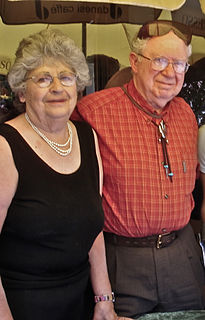
Thelma Estrin was an American computer scientist and engineer who did pioneering work in the fields of expert systems and biomedical engineering. Estrin was one of the first to apply computer technology to healthcare and medical research. In 1954, Estrin helped to design the Weizmann Automatic Computer, or WEIZAC, the first computer in Israel and the Middle East, a moment marked as an IEEE Milestone in Electrical and Computer Engineering. She was professor emerita in the Department of Computer Science, University of California at Los Angeles (UCLA).
Maryellen L. Giger, PhD currently holds the title of A.N. Pritzker Distinguished Service Professor of Radiology and is a member of the Committee on Medical Physics at the University of Chicago. She is also the vice-chair of Radiology and the former director of the CAMPEP-accredited Graduate Programs in Medical Physics/chair of the Committee on Medical Physics at the university. Giger also co-founded Quantitative Insights, Inc., whose product QuantX is the first FDA-cleared, machine-learning driven system to aid in cancer diagnosis. In 2019, QuantX was named one of TIME magazine's inventions of the year.

Ellis Meng is the Shelly and Ofer Nemirovsky Chair of Convergent Biosciences and Professor of Biomedical Engineering and Electrical and Computer Engineering in the Viterbi School of Engineering at the University of Southern California, where she also serves as the Vice Dean of Technology Innovation and Entrepreneurship. Meng is highly decorated in the development of novel micro- and nanotechnologies for biomedical applications. In 2009, Meng was named on MIT Technology Review's "Innovators Under 35" List for her work on micropumps that deliver drugs preventing blindness, and she was listed on the 40 Under 40 List of the Medical Device and Diagnostic Industry (MDDI) in 2012.

(Julia) Alison Noble is Technikos professor of Biomedical Engineering at the University of Oxford, a fellow of St Hilda's College, Oxford and Associate Head of the Mathematical, Physical and Life Sciences Division at the university. As of 2017 she is chief technology officer (CTO) of Intelligent Ultrasound Limited an Oxford University spin-off in medical imaging which she cofounded. She was director of the Oxford Institute of Biomedical Engineering (IBME) from 2012 to 2016.
Regina Barzilay is an Israeli-American computer scientist. She is a professor at the Massachusetts Institute of Technology and a faculty lead for artificial intelligence at the MIT Jameel Clinic. Her research interests are in natural language processing and applications of deep learning to chemistry and oncology.
Martha Gray is a biomedical engineer and professor at the Massachusetts Institute of Technology, jointly appointed in the Department of Electrical Engineering and Health Sciences and Technology (HST). Gray became the first woman to lead a department of science or engineering at MIT when she became the co-director of the Harvard–MIT Program of Health Sciences and Technology in 1987. She has developed multidisciplinary programs at MIT. Her research focuses on understanding and preventing Osteoarthritis, and her team developed the imaging technology dGEMRIC, now used to examine cartilage.
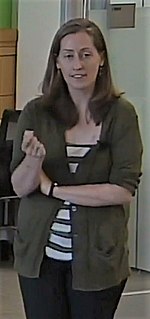
Laura Ann Waller is a computer scientist and Ted Van Duzer Endowed Associate Professor at the University of California, Berkeley. She was awarded a Chan Zuckerberg Initiative Fellowship to develop microscopes to image deep structures within the brain in 2017 and won the 2018 SPIE Early Career Award.

Muyinatu “Bisi” A. Lediju Bell is the John C. Malone Assistant Professor of Biomedical Engineering, Electrical and Computer Engineering, and Computer Science at Johns Hopkins University. She is director of the Photoacoustic and Ultrasonic Systems Engineering Laboratory.

Anne E. Carpenter is an American scientist in the field of image analysis for cell biology and artificial intelligence for drug discovery. She is the co-creator of CellProfiler, open-source software for high-throughput biological image analysis, and a co-inventor of the Cell Painting assay, a method for image-based profiling. She is a PI and senior director of the Imaging Platform at the Broad Institute.
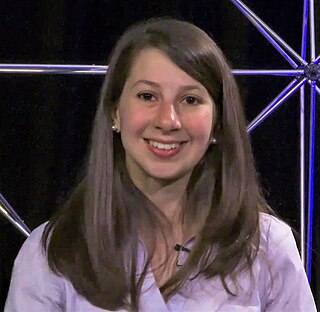
Katherine Louise Bouman is an American engineer and computer scientist working in the field of computer imagery. She led the development of an algorithm for imaging black holes, known as Continuous High-resolution Image Reconstruction using Patch priors (CHIRP), and was a member of the Event Horizon Telescope team that captured the first image of a black hole.
Amanda Randles is an American computer scientist who is the Alfred Winborne and Victoria Stover Mordecai Assistant Professor of Biomedical Sciences at Duke University. Randles has been an assistant professor of biomedical engineering and computer science at the university and works at the Duke Cancer Institute. Her research interests include biomedical simulation and high-performance computing.
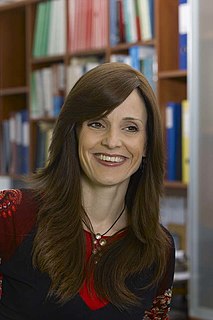
Yonina C. Eldar is an Israeli professor of electrical engineering at the Weizmann Institute of Science, known for her pioneering work on sub-Nyquist sampling.
Sharon Gerecht is an Israeli bioengineer. She is a professor of chemical and biomolecular engineering at the Whiting School of Engineering. Gerecht is the Kent Gordon Croft Investment Management Faculty scholar and director of the Johns Hopkins Institute of NanoBioTechnology (INBT). She holds a joint appointment in Oncology at the Johns Hopkins School of Medicine and in Materials Science and Engineering and Biomedical Engineering. She will be moving to Duke University in 2022. In 2011, she won a National Science Foundation CAREER Award. She was elected a fellow of the American Institute for Medical and Biological Engineering in 2016 and a member of the National Academy of Medicine in 2019. Gerecht completed a B.A. in biology at Technion – Israel Institute of Technology in 1994. She earned a M.Sc. in medical sciences at Tel Aviv University in 1999 and a Ph.D. in biotechnology engineering at Technion in 2004. She was a postdoctoral researcher at Massachusetts Institute of Technology.
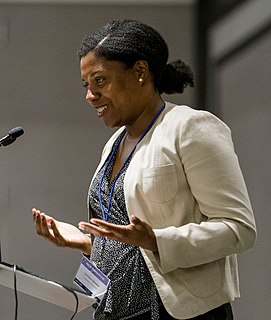
Christine P. Hendon is an electrical engineer and computer scientist and an associate professor in the Department of Electrical Engineering at Columbia University in New York City. Hendon is a pioneer in medical imaging. She develops biomedical optics technologies, using optical coherence tomography and near infrared spectroscopy systems, that enable physicians to perform guided interventional procedures and allow for structure-function dissection of human tissues and organs. Her advances in imaging technologies have led to improved diagnostic abilities and treatments for cardiac arrhythmias as well as breast cancer and preterm birth. She has been recognized for her development of optical imaging catheters for cardiac wall imaging by Forbes 30 under 30, the MIT Technology Review’s 35 Innovators Under 35, and by President Obama with the Presidential Early Career Awards in 2017.
Murray Eden, was an American physical chemist and academic. He was a professor in electrical engineering, a lecturer, a visiting professor and adjunct professor at institutions including at MIT and NIH.

Kaitlyn Noelle Sadtler is an American immunologist and bioengineer and Stadtman Tenure-Track Investigator at the National Institute of Biomedical Imaging and Bioengineering, known for completing the first population-wide serosurvey during the COVID-19 pandemic in the United States in 2020.
Laurie A. Boyer is an American biomedical engineer who is a professor at the Massachusetts Institute of Technology. Her research considers embryonic stem cells and cardiac development.
References
- ↑ Birth year from WorldCat Identities, retrieved 2022-03-14
- 1 2 3 4 Stuart, Anne E. (September 13, 2018), "Polina Golland named to Henry Ellis Warren (1894) Chair", News & Events, MIT EECS, retrieved 2022-03-14
- 1 2 Gordon, Rachel (February 16, 2021), "Golland named 2021 AIMBE Fellow", News, MIT CSAIL, retrieved 2022-03-14
- ↑ Polina Golland at the Mathematics Genealogy Project